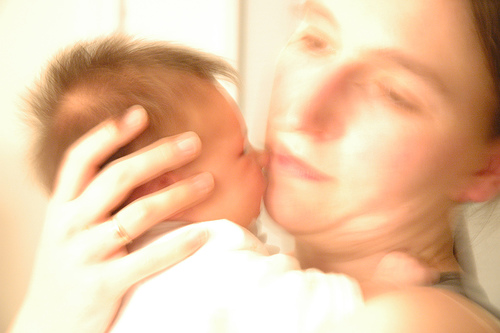“Cicho” would be spelled phonetically in English “chee-ho,” with the “o” being very short.
“Ciiiiiiiiii-cho, cicho, cicho, cicho. Ciiiiiiiiii-cho, cicho, cicho, cicho.” K leans over L — who is simultaneously howling, crying, screeching, and moaning — and whispers the most onomatopoeic word in Polish.
“Quiiiiiiiiiiiiiiet, quiet, quiet quiet.”
It’s a word conducive to whispering, made up entirely of long, soft, quiet sounds. It has all the sounds of the womb, all the peace of a whisper, and all a rhythm that softly strokes the ear. Hearing “cicho” whispered makes one’s eyes want to close.
It’s probably the most pleasant sounding word in a language made up of harshness. W Szczebrzeszynie chrząszcz brzmi w trzcinie (Translation). These are the sounds of Polish: a phlegmatic language best spoken with spit flying everywhere.
What’s so remarkable about the word is that, when a mother whispers it, “cicho” contains the universal sound made for comforting a baby — it contains an inherent “shush.”
It is a candle being extinguished by damp fingers; the sound of walking through dry, light snow; the sound wind and leaves and trees.
If L chooses not to speak Polish to her own children many years in the future, I hope she chooses at the very least to calm them with a whispered “cicho.”

